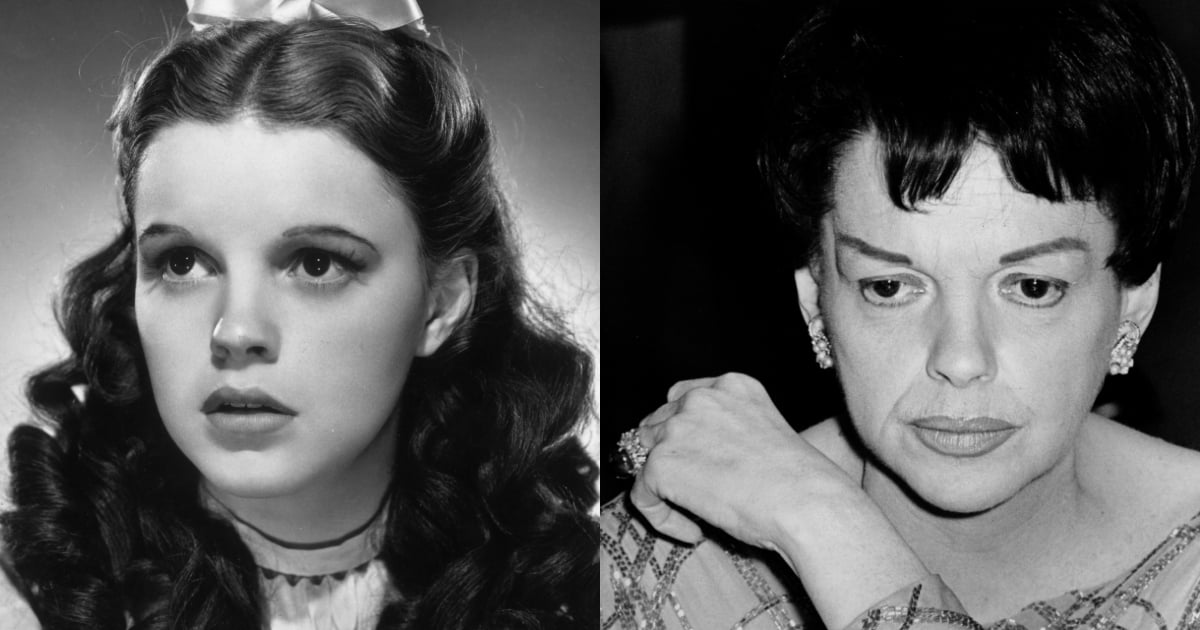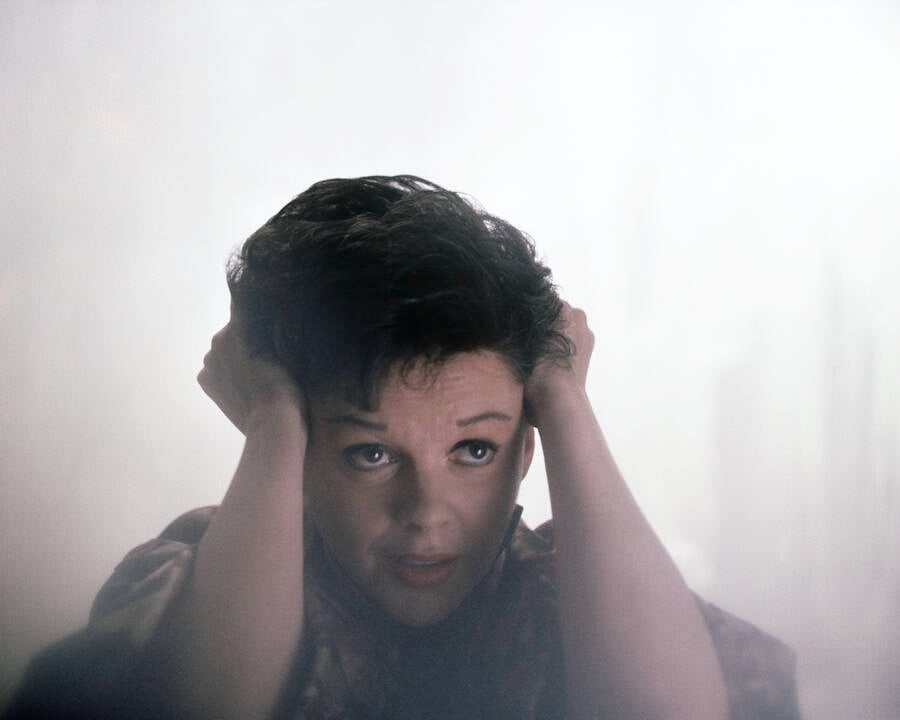When we talk about Hollywood legends, Judy Garland's name always comes up. But there's one question that keeps popping up: Did Judy Garland commit suicide? Today, we’re diving deep into her life, struggles, and the truth behind her untimely death. So, grab your favorite drink, and let's uncover the real story together.
Judy Garland wasn't just any star. She was the girl who melted our hearts as Dorothy in "The Wizard of Oz." But behind the glittering spotlight and the magical ruby slippers, there was a life filled with pain, addiction, and heartbreak. Was her death a result of her own hand, or was it something else entirely? Let's find out.
Before we jump into the nitty-gritty, let's set the scene. Judy Garland wasn't just a name; she was a symbol of resilience and talent. Her story is one of triumph and tragedy, and today, we're here to separate fact from fiction. Did Judy Garland commit suicide? The answer might surprise you.
Read also:Moisturizer Spf The Ultimate Guide To Protecting Your Skin
Biography: Who Was Judy Garland?
Before we can answer the question of whether Judy Garland committed suicide, it's important to understand who she was. Born Frances Ethel Gumm on June 10, 1922, in Grand Rapids, Minnesota, Judy Garland grew up in a family of performers. Her mother, Ethel Gumm, was a vaudeville performer, and her father, Frank Gumm, ran a movie theater. From a young age, Judy was thrust into the world of entertainment, and by the age of two, she was already performing on stage.
Early Life and Career
Judy's childhood wasn't your typical one. She was performing almost from the moment she could walk and talk. By the time she was 13, she had already signed with Metro-Goldwyn-Mayer (MGM), the studio that would launch her to stardom. Her big break came in 1939 when she played Dorothy Gale in "The Wizard of Oz," a role that would define her career forever.
But success came at a price. Judy's life in Hollywood was anything but glamorous. The studio system was notorious for its harsh treatment of young stars, and Judy was no exception. She was put on strict diets, given amphetamines to keep her energy up, and barbiturates to help her sleep. This pattern of drug use would follow her throughout her life.
Biodata of Judy Garland
| Full Name | Frances Ethel Gumm |
|---|---|
| Birth Date | June 10, 1922 |
| Place of Birth | Grand Rapids, Minnesota |
| Death Date | June 22, 1969 |
| Place of Death | London, England |
| Spouse(s) | David Rose, Vincente Minnelli, Sid Luft, Mark Herron, Mickey Deans |
| Children | Lorna Luft, Liza Minnelli, Joseph Luft |
Did Judy Garland Commit Suicide? Debunking the Myth
Now, let's get to the heart of the matter. Did Judy Garland commit suicide? The short answer is no. Judy Garland did not take her own life. Her death on June 22, 1969, was ruled as an accidental overdose of barbiturates. She was only 47 years old at the time.
What Happened on the Day of Her Death?
On the day she passed away, Judy was staying at a flat in London with her then-husband, Mickey Deans. She had been struggling with her health and had been in and out of hospitals for various issues. That evening, she took a lethal dose of barbiturates, which ultimately led to her death. The coroner's report stated that it was an accidental overdose, not a deliberate act.
Struggles with Addiction
Throughout her life, Judy battled with addiction. The drugs she was given as a young star at MGM had set her on a path of dependency that would haunt her for the rest of her life. She tried to get clean several times, but the pressures of show business and her personal life made it incredibly difficult.
Read also:Robin Wright In Forrest Gump A Journey Through Time And Talent
It's important to note that in the 1960s, addiction wasn't treated the way it is today. There wasn't the same level of understanding or support available. Judy's struggles were compounded by the fact that she was a public figure, and her every move was scrutinized by the media.
Her Legacy: Beyond the Rainbow
Judy Garland's legacy extends far beyond the question of whether she committed suicide. She was a powerhouse performer whose voice and presence left an indelible mark on the entertainment industry. Even today, decades after her death, her music continues to inspire and resonate with fans around the world.
Iconic Performances
- The Wizard of Oz: Her portrayal of Dorothy Gale remains one of the most iconic roles in cinematic history.
- Over the Rainbow: This song became Judy's signature tune and a symbol of hope for generations.
- A Star is Born: Her performance in this film earned her an Academy Award nomination and showcased her incredible range as an actress.
Influence on Pop Culture
Judy Garland's influence on pop culture cannot be overstated. She was a trailblazer in many ways, breaking barriers and paving the way for future generations of performers. Her life and career have been the subject of countless books, documentaries, and films, ensuring that her story will never be forgotten.
Understanding Judy Garland's Mental Health
Another crucial aspect of Judy Garland's life that often gets overlooked is her mental health. In addition to her struggles with addiction, Judy also battled depression and anxiety throughout her life. These issues were exacerbated by the pressures of her career and her tumultuous personal life.
Seeking Help
Judy sought help for her mental health issues on numerous occasions. She saw therapists and was prescribed medication to help manage her symptoms. However, like many people at the time, she faced stigma and misunderstanding when it came to mental health.
Modern Perspective
Today, we have a much better understanding of mental health and addiction. Judy's story serves as a reminder of how far we've come in terms of treatment and support. It also highlights the importance of addressing these issues with compassion and understanding.
Lessons from Judy Garland's Life
While Judy Garland's life was filled with tragedy, it also offers valuable lessons for us all. Here are a few takeaways:
- The Importance of Self-Care: Judy's story shows us the dangers of neglecting our physical and mental health.
- Breaking the Stigma: We must continue to break down the stigma surrounding mental health and addiction.
- Resilience: Despite everything she faced, Judy Garland remained a symbol of resilience and strength.
Conclusion: Remembering Judy Garland
In conclusion, the question "Did Judy Garland commit suicide?" has a definitive answer: no. Her death was ruled an accidental overdose, a tragic end to a life filled with both triumph and tragedy. But her legacy lives on, inspiring countless fans and performers around the world.
As we reflect on her life and career, let's remember the importance of supporting those who struggle with addiction and mental health issues. Let's celebrate her incredible talent and the impact she had on the entertainment industry. And most importantly, let's ensure that her story continues to be told with the respect and admiration it deserves.
So, what do you think? Did this article shed some light on Judy Garland's life and death? Leave a comment below and let's keep the conversation going. And don't forget to share this article with your friends and family who love Judy Garland as much as we do!
Table of Contents
- Biography: Who Was Judy Garland?
- Early Life and Career
- Biodata of Judy Garland
- Did Judy Garland Commit Suicide? Debunking the Myth
- What Happened on the Day of Her Death?
- Struggles with Addiction
- Her Legacy: Beyond the Rainbow
- Iconic Performances
- Influence on Pop Culture
- Understanding Judy Garland's Mental Health
- Seeking Help
- Modern Perspective
- Lessons from Judy Garland's Life
- Conclusion: Remembering Judy Garland


